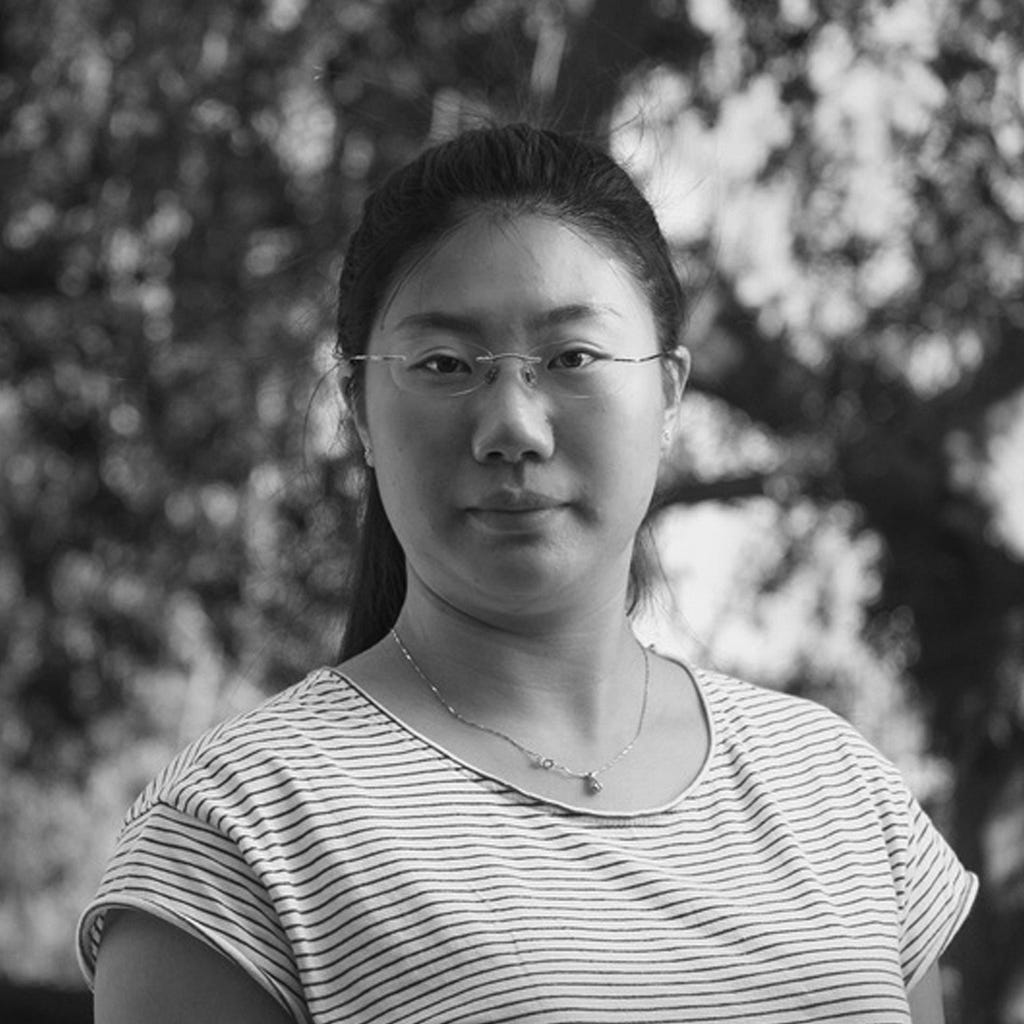
Believe in yourself — I used to doubt myself every time I started a new job. Soon I realized that I was being too hard on myself, which was preventing me from performing at my highest level.
As a part of our series about creating a successful career in TV and Film, I had the distinct pleasure of interviewing Zekun Mao.
Zekun is an editor currently working in the film and TV industry. Among her editing credits is the short film Jie Jie, which screened at over 20 international film festivals, including the Short Shorts Film Festival & Asia and Melbourne International Film Festival. She also edited the short film Edge of Red, which screened at the Edinburgh International Film Festival. The feature film she edited, American Girl, is currently streaming on Netflix. Recently, she edited the short film Maps, which premiered at the Tribeca Film Festival. She was assistant editor on the Academy Award-nominated movie Everything Everywhere All At Once, released in 2022. She was most recently assistant editor on the Sony Pictures movie Devotion, and the Showtime series Let The Right One In.
Thank you so much for joining us in this interview series! Can you tell us the story of how you grew up?
I was born in Hohhot, Inner Mongolia province in China, but grew up in Beijing. My father is a meteorologist and my mother is a teacher. No one in my family worked in the entertainment industry. I went to Hong Kong City University for college. I studied Creative Media, which gave me the chance to learn every aspect of filmmaking. Then I attended the American Film Institute Conservatory to pursue editing.
Can you share a story with us about what brought you to this specific career path?
While I was in high school, I learned English often through watching movies. Gradually, I became more and more interested in the film industry. But the movie that really made me decide to learn about filmmaking is Pirates of the Caribbean: The Curse of the Black Pearl. It sounds cliche, but I loved the story and the visuals. It really made me want to get into filmmaking, which led me to my decision to study filmmaking in college. When I was in college, one of my teachers was a documentary filmmaker. While making my very own documentary, I discovered my passion for editing. I loved going through all the footage and using it to tell a compelling story. Therefore, I applied to the AFI Conservatory’s Editing Discipline, to learn more about editing and eventually becoming an editor.
Can you tell us the most interesting story that happened to you since you began your career?
One of my most interesting experiences is the story of how I became the assistant editor of Everything Everywhere All At Once. In late 2019, the director of the editing facility at AFI Conservatory, where I had studied, forwarded an email to me. It was originally from the editor of the film, who used to work for AFI many years ago. He was looking for an assistant editor who spoke Chinese to work with him on a union feature film. Turns out I had just become a union member the previous day. I replied to the email immediately and happened to be the first applicant who interviewed. I received the good news 2 weeks later. The film has gone on to be such a success, and it’s crazy to think that I was able to work on it due to a combination of the right people at the right time.
It has been said that our mistakes can be our greatest teachers. Can you share a story about the funniest mistake you made when you were first starting? Can you tell us what lesson you learned from that?
For the first short film I edited at film school, I was responsible for making the end rolling credits. However, due to my lack of experience at the time, I misjudged how fast the rolling credits would look on a large screen. When I screened it for the first time in class, my classmates burst out laughing when they saw how fast the credits were rolling. It was funny but also embarrassing at the same time and looked like I had no respect for the crew members in the credits. What I learned is that everyone deserves their names to be shown in the credits for a good amount of time, because it is a way of recognizing the hard work they’ve put in.
What are some of the most interesting or exciting projects you are working on now?
I just finished working on a Showtime series called “Let the Right One In”. It’s a horror series with a thrilling family story at its core. It just aired recently, and I hope everyone enjoyed it!
You have been blessed with success in a career path that can be challenging. Do you have any words of advice for others who may want to embark on this career path, but seem daunted by the prospect of failure?
It can be scary to work in such a competitive and unpredictable field. I remember how intimidated I was when I started out. However, being confident and positive can make a huge difference. Don’t be afraid of failing, as it is usually a stepping stone to eventual success.
We are very interested in diversity in the entertainment industry. Can you share three reasons with our readers about why you think it’s important to have diversity represented in film and television? How can that potentially affect our culture?
The modern world is more interconnected than ever, so it becomes important to reflect this interconnectedness on screen. The more we know about different cultures, the more understanding we can have for each other. Diversity is what makes our world so interesting. A diverse film and television industry can greatly enrich our perception of the world. Hopefully, increased diversity in the industry can lead to increased respect and tolerance — something that is currently lacking in our culture.
What are your “5 things I wish someone told me when I first started” and why? Please share a story or example for each.
- Believe in yourself — I used to doubt myself every time I started a new job. Soon I realized that I was being too hard on myself, which was preventing me from performing at my highest level.
- Be patient — it takes time to grow in this industry. With time comes experience. Being patient helps you accumulate the skills and knowledge that will benefit you in the long run.
- Challenge yourself — don’t be afraid of doing more work. Eventually, no work goes to waste. There’s always something to learn from every experience — whether it’s a good or bad one.
- Pay it forward — Our industry seems big, but can be relatively small. No good deed goes unnoticed. If you help someone out today, they or someone else could be helping you someday in the future.
- Take time off — it is important to take the time to recalibrate, as working in this industry can be very stressful. We are asked to perform at our best level every day. It is important to take care of yourself and give yourself a break so that you don’t get burnt out.
Which tips would you recommend to your colleagues in your industry to help them to thrive and not “burn out”?
Take a break when you need it! Don’t be too hard on yourself.
You are a person of enormous influence. If you could inspire a movement that would bring the most amount of good to the most amount of people, what would that be? You never know what your idea can trigger. 🙂
I don’t think of myself as hugely influential, but thank you for the compliment! If I had that opportunity, I would love to bring more support and kindness towards post-production workers. Most audiences only pay attention to what’s on the screen, not realizing that the film would not have been finished without the post-production crew. Their efforts deserve the same amount of attention as the production crew.
None of us are able to achieve success without some help along the way. Is there a particular person who you are grateful towards who helped get you to where you are? Can you share a story about that?
I am grateful to the professor who taught me documentary film editing while I was attending college. Documentary film editing can be a long, exhausting process due to large amounts of footage. But it led me to discover my passion for telling stories through editing, and has shaped my career.
Can you please give us your favorite “Life Lesson Quote”? Can you share how that was relevant to you in your life?
Go with the flow — sometimes we try too hard to control our own fate and try to force things to work out. We often end up failing and exhausted, even hopeless. What we should realize is that eventually, the right things will happen at the right time, and we need to have faith in that.
We are very blessed that some very prominent names in Business, VC funding, Sports, and Entertainment read this column. Is there a person in the world, or in the US with whom you would love to have a private breakfast or lunch with, and why? He or she might just see this if we tag them.
One of the greats, Lee Smith. I would love to chat with him about his collaboration with Christopher Nolan, whose films I love. I would love to know about his process of approaching complex narrative footage.
How can our readers follow you online?
I am not on any social media platform, but here is my IMDb: https://www.imdb.com/name/nm8572013/?ref_=fn_al_nm_1
This was very meaningful, thank you so much! We wish you continued success!
Rising Star Zekun Mao On The Five Things You Need To Shine In The Entertainment Industry was originally published in Authority Magazine on Medium, where people are continuing the conversation by highlighting and responding to this story.
